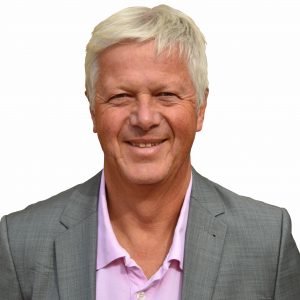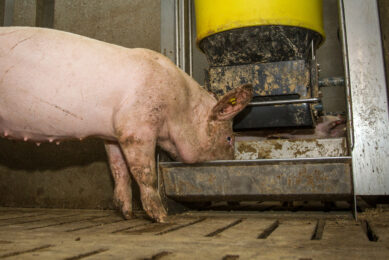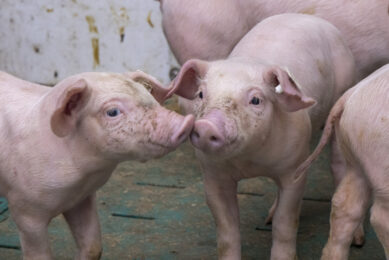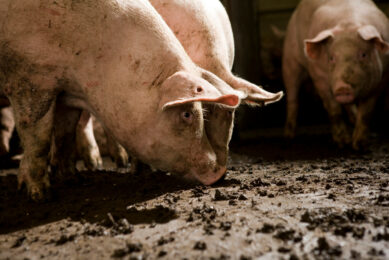Europe’s pig producers discuss how to engage consumers at EPP Congress
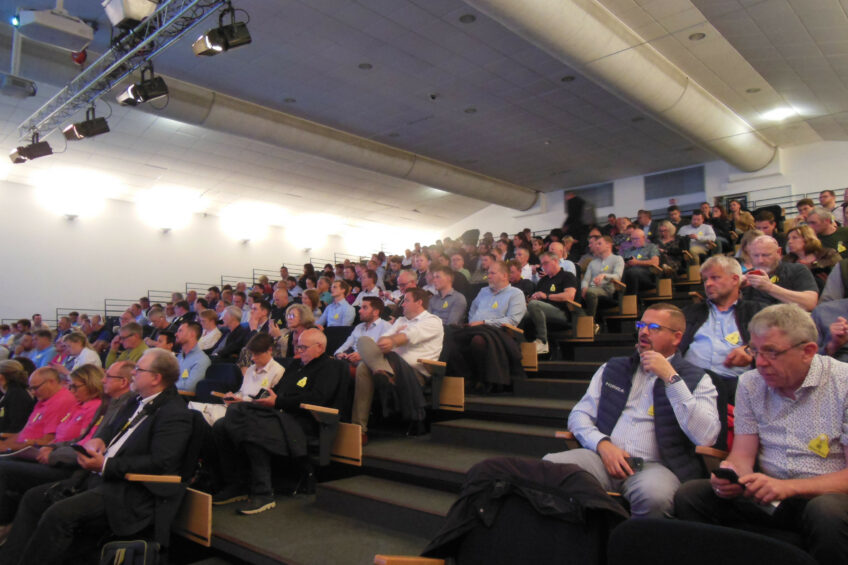
Every year, Europe’s pig producers gather at the EPP Congress to learn about each other’s experiences and catch a glimpse of what pork production is like in one of the other countries. This year the venue was Nantes, France, from 29-31 May. Key question was: how to engage consumers better?
Over 300 interested swine producers from 6 countries made it to France for the EPP Congress. Producers came from all over Europe and even beyond, with the Netherlands, Denmark and Germany being well represented. Part of the event included a 2-day practical visit to Brittany, the heart of France’s swine industry. One tour included the French Pork & Pig Institute (IFIP), feed additive producer Olmix and pig cooperative Cooperl. Another tour included visits to the agricultural college (ESA) in Angers and the laboratory Ceva Biovac in Beaucouzé.
The congress part focused on the question “How to engage consumers?” Various speakers from the French swine industry addressed this question. Delegates learned more about the French pork sector.

Keeping a direct link with consumers
Sven Häuser, manager of EPP, summarised that the question was answered in different ways and different perspectives. “We should keep a direct link to consumers and use social networks to engage especially the younger generation in the cities which never had a direct contact to farms. These clients have no idea how their food is going to be produced.”
“We should send clear and transparent information about animal welfare and environmental impact to them, so meat labelling is still an important issue for us. Production without considering the needs and wants of consumers will lead us into a dead end.
“Of course, EU regulations should also consider the needs and wants of farmers. Sustainability means also that running a farm has to be economically as well. Only in that case farmers are willing and able to improve production and to invest in innovative technology. EuroTier in November will show a lot of innovations of the sector, so we are already looking forward to our next EPP gathering within this exhibition.”
Communicating better
Christiane Lambert is president of Copa-Cogeca, the united voice of farmers and agri-cooperatives in the EU. She said, “Pig farmers work a lot and would benefit from communicating better and making their profession known. We need a Europe that listens more to the producers, let’s not leave room for those who don’t know how to communicate, and continue to improve our performance while reducing greenhouse gas emissions in order to meet current strong societal expectations.”
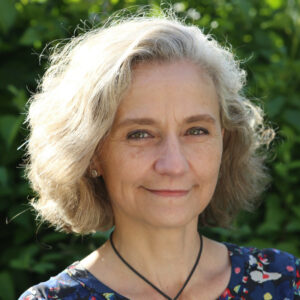
Pork production in France
Dr Christine Roguet, agro-economist at IFIP, gave an interesting overview on pig and pork production in France. She said, “Pork represented 5% of agricultural production in value in France in 2023, vs 29% in Denmark, 18% in Spain, 12% in Germany and 10% in the Netherlands. With a per capita consumption of 31.9 kilogrammes in 2023, pork is the number #1 meat consumed in France, followed by poultry.
“Since 2000, France has been facing a decrease in both production (-9.4% between 2000 and 2023) as well as consumption (-7.5 % between 2000 and 2023). The country’s main challenge is to maintain its self-sufficiency (102% in 2023). Regarding the main structural characteristics of French pig farms in 2020, the typical French pig farm is specialised, farrow-to-finish with 260 sows, has 80 ha of utilised agricultural area (UAA), and provides on average 3.07 full-time equivalent jobs (of which 55% is hired).
Innovation with high welfare
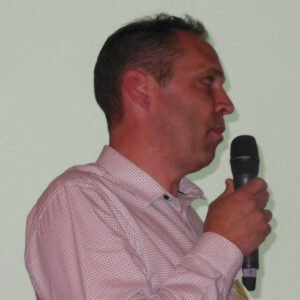
Laurent Dartois is involved with the high welfare farm Ker Angel, in Côtes d’Armor department, Britanny, France. His presentation revolved around the collaboration between the farm and retailers.
Ker Angel positions itself asl an “alternative” pig farm for 300 sows which aims to find the middle between organic and conventional farming. As Dartois said, “We innovated in a no man’s land between standard and organic production.”
The farm is part of the French group Agromousquetaires, which grew its involvement in pigs from 200 sows in 2001 to 1,500 sows cropland nowadays. The group started the Ker Angel initiative in 2019. The Ker Angel farm houses 300 Adenia sows from genetics company Axiom, raises 7,500 pigs per year and has a health status free from all main diseases. The farm revolves around several features: four batches of 70 sows (five-week management), free farrowing pens, on-site weaning (28 days), fattening on straw, uncastrated males, long tails and hogs raised without antibiotics.
Ker Angel built a long-term partnership with French retailer Intermarché. Three times per week, the farm sells 60 pigs (on Monday, Tuesday and Friday) at a long term fixed price over €3/kg carcass. In addition, there is a cooperation with 150 shops as well. Dartois described Ker Angel as “a win-win deal between two links within the value chain.” Jean-Baptiste Saria, president of Agromousquetaires added, “Ker Angel’s transparency will reassure the consumers about the pig production leading to the engagement of the consumer.”
Hénaff’s long term strategy
Jean Hénaff is CEO of Groupe Jean Hénaff, a company from Britanny founded in the 19th century, producing agricultural products. In 2019, the company identified 4 key areas to work in: pork, algae, fish and peppers. The company’s pig community currently consists of eight conventional farms plus ten organic farms. “We have common objectives from farm to slaughterhouse which helps us to work together,” said Hénaff. His aim is also to communicate with consumers and build confidence with them.
In his presentation, he talked about the company’s positive impact approach called Be Good 2030. Hénaff said, “Our goal is to review our DNA, to share our know-how of more than a century respecting the UN Sustainable Development Goals.” Be Good 2030 is an approach in 5 pillars (protecting the environment in Britanny, being committed to the Hénaff community, doing pioneering work, upholding animal welfare; and offering healthy, delicious and innovative products). Those in turn translate into 14 commitments.
The next EPP congress will be held in Denmark, May 14-16, 2025.


